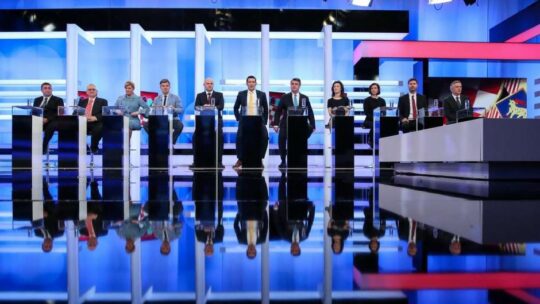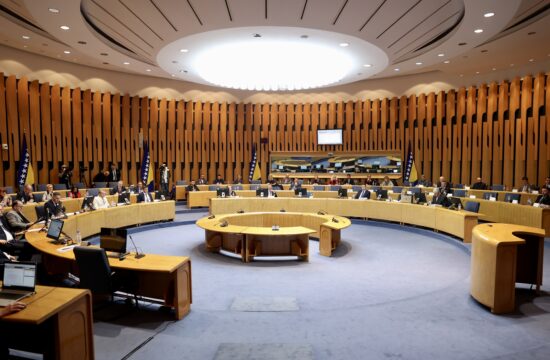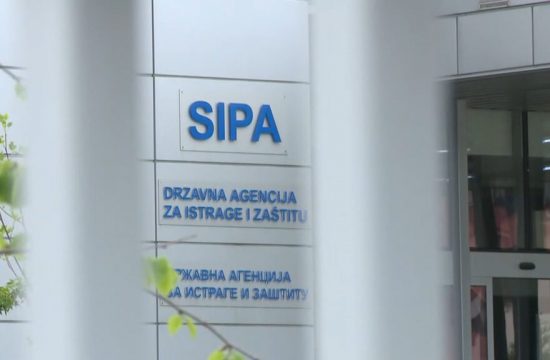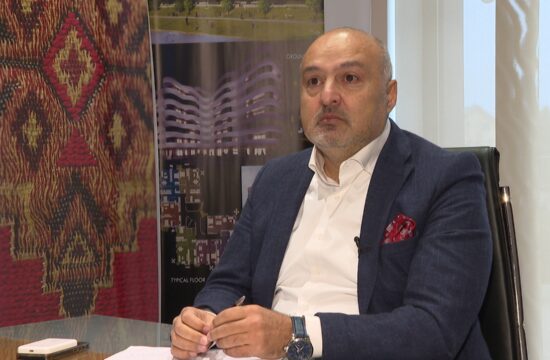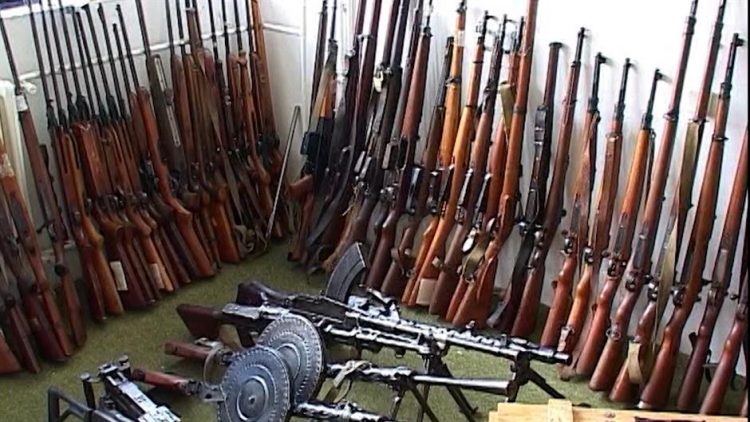
The terrorist from Vienna used Serbia's 'Zastava' rifle, as well as the terrorists in Paris in 2015, the German' Die Welt' said, while 'Frankfurter Allgemeine Zeitung' wrote about Islam and Islamism in Northern Macedonia and Kosovo, Deutsche Welle, DW, reported on Friday.
The report titled ‘Trail from Vienna Leads to Weapons Supermarket’ begins with the description of a photo posted on Instagram by Kujtim F, a terrorist who killed four and wounded more than 20 people in Vienna on Monday, with the photo reading: ‘Muhammad is the Messenger of God.’
“But the weapon he was photographed with says a lot more about him,” Alfred Hakensberger wrote, and added “the automatic rifle and pistol are of the same brand as the weapons used by ISIS terrorists in the Paris attacks in 2015. That includes Serbia-made Zastava rifle M70. With that Serbia's version of a Russian Kalashnikov (AK-47), Kujtim F. shot at innocent people in Vienna. A Tokarev pistol was found near him was the same type of the gun the French police found on some of the attackers in Paris,” the report said.
Metodi Hadzi-Janev, a military and security analyst from North Macedonia, told Die Welt he was not surprised that”the Viennese attacker was also armed with weapons from a Serbia's company.”
“There are a lot of flag rifles and they can be obtained cheaply on the black market. They are easy to maintain, reliable and easy to use. You can buy them through Darknet and directly from criminal networks, which are very powerful and influential in Serbia and other Southeast countries. Europe,” he added.
Die Welt said Haxhi-Janev, was one of the five authors who, after extensive research in June, published a study by the Institute for Tactics on Illegal and Legal Arms Trade in Southeast Europe, which also focused on Saudi Arabia and the United Arab Emirates (UAE).
“According to the report, the business model is simple. Weapons are legally bought and taken out of the country. Then they get new certificates somewhere and are delivered in completely different places, not to the originally mentioned buyer countries. Rifles from Bulgaria, mortar grenades from Serbia, ammunition and rocket launchers from Croatia reach terrorist groups such as Al Qaeda and the ‘Islamic State’ in Syria, Libya, Yemen and Iraq,” the Die Welt report read.
It added that “new weapons come from factories in Serbia and Croatia, and besides, millions of used weapons are in circulation, which was ‘lost’ in the turmoil of the civil war, after the disintegration of Yugoslavia in the 1990s.”
The situation in the Balkans is worrying, the report says, and adds that Germany, together with France, has launched an initiative a year ago to suppress the illegal arms trade left after the wars in Yugoslavia.
It is being worked on in cooperation with the European Union which has announced a five-year ‘Action Plan’ to combat the illicit arms trade in July this year, calling the Balkans “the main arms supply route.”
According to the German Foreign Ministry, six million small arms are in circulation, many of which could end up in EU member states.
However, Haxhi-Janev says the purchase of weapons in the countries of the former Yugoslavia can be completely legal.
“But what happens after is often forbidden, especially when goods are delivered to war zones, which are often under international embargo, he said, describing the Balkans as a weapon supermarket.”
“Anyone with any organisational skills can acquire a weapon, as a terrorist has done in Vienna. Fortunately, the assassin was not a good shooter. He fired more than 150 bullets. If he had been trained militarily, there would have been many more victims,” Haxhi said.
The Frankfurter Allgemeine Zeitung titled its report by Michael Martens ‘Allah is our Commander,’ in which the author dealt with Islam and Islamism in Northern Macedonia and Kosovo following the Vienna attack.
He said the assassin apparently became radicalised in Vienna, that he was connected to Islam through his parents, – but not to Islamism – which “is still a marginal phenomenon” in Northern Macedonia, where Muslims make up a little more than a quarter of the population.
“However, the relatively liberal interpretation of Islam practised by many Muslims in the Balkans has also come under pressure,” the report said, quoting an Austrian historian and Albanologist, who has been doing ground researches in Kosovo and northern Macedonia for decades.
“The most noticeable are covered women and men in typical shorts that you meet more and more often in the streets,” Robert Pichler said about the situation in Kosovo, and Tetovo and Gostivar in North Macedonia.
Many new mosques change the landscape with their size and height of their minarets. Ten to 15 years ago at weddings, it was still quite normal for guests to drink, but there is no more of that today. Near the mosques, it is no longer greetings in Albanian, but in Arabic with Selam Alaykum. The influence of hodjas and imams, who think it is bad to go out in the evening, listen to Western music, drink and smoke, has noticeably increased, “
However,” he added, “such developments have met with much more opposition in Kosovo than among more conservative Albanian Muslims in North Macedonia.”
Kosovo, which is fighting Arab influence, has strengthened Turkey's importance, for example through imams who are educated there,” Pichler said
Frankfurter Allgemeine Zeitung also quoted Pichler as saying he met “Muslims in North Macedonia with a distinctly anti-Western attitude,” which he called strict believers, “who strive for an order based on Sharia law. And one of them told him – Allah is our Commander.”
The paper added that “the intensive activities of many humanitarian Islamic organisations from the Arab region that came after the 1989-1999 war in Kosovo were committed to spreading the reactionary orientation of Islam in the area.
In North Macedonia, too, “many Muslims faced a radically different interpretation of their religion – which had been misunderstood by the older generation of Albanian Muslims socialised in communist Yugoslavia and which they reject. “
“That older generation is especially shaken by the attack in Vienna. They want to prove that they are Westerners. It is a shame for the parents’ generation when their sons convert to Islamism. It deeply affects them,” Pichler was quoted as saying.

